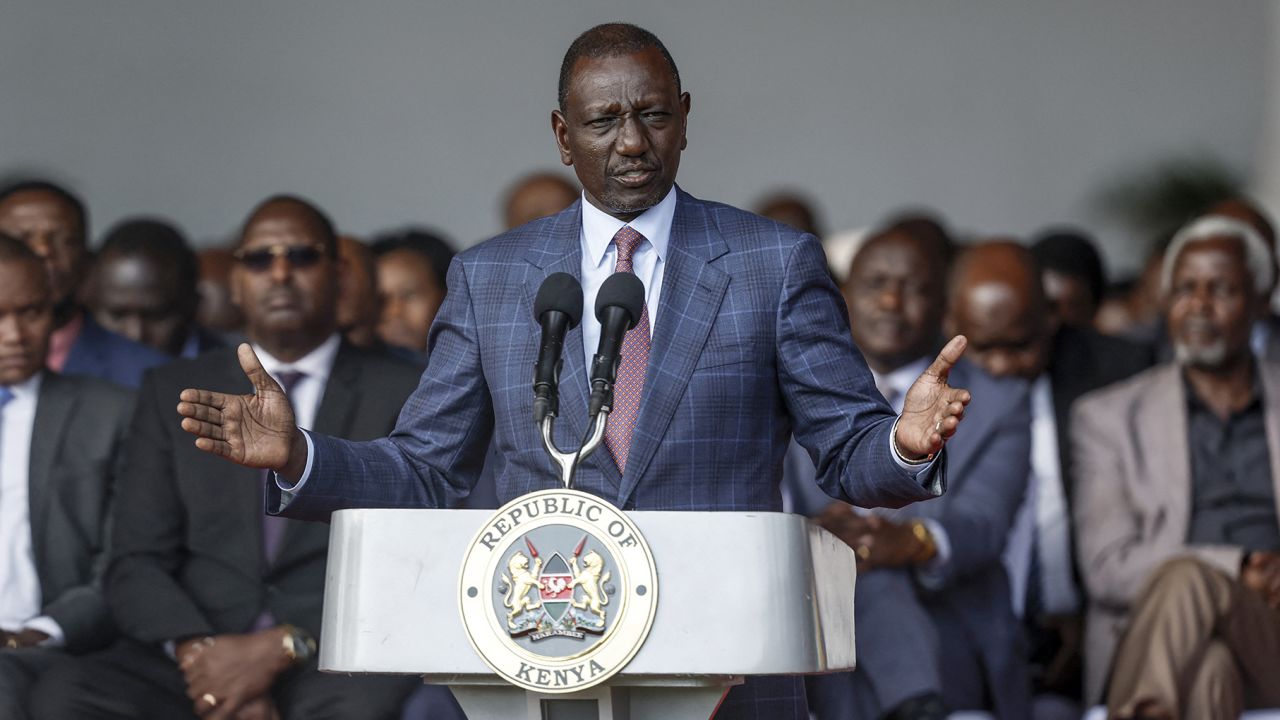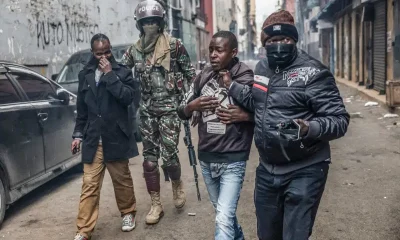
Foreign
Kenya Protest: President Bows to Pressure Withdraws Finance Bill

(iexclusivenews) -In a stunning reversal, Kenyan President William Ruto has announced the withdrawal of the controversial Finance Bill 2024, following days of intense protests that shook the nation to its core.
This decision marks a significant turning point in Kenya’s recent political landscape and offers a moment of reflection on the power of public dissent.

The Controversial Finance Bill: A Brief Overview
The Finance Bill 2024 was initially proposed as a measure to address Kenya’s mounting public debt.
However, its provisions sparked widespread outrage among citizens. Key controversial aspects included:
- A proposed 16% value-added tax on bread
New taxes on motor vehicles
Increased levies on vegetable oil and mobile money transfers
Despite the government’s attempts to soften some of these measures, the concessions failed to quell the growing dissatisfaction among Kenyans.

Protests Turn Deadly: A Nation in Turmoil
The peaceful protests that began last week took a dark turn on Tuesday, June 27, 2024. Security forces employed tear gas and live ammunition against demonstrators, resulting in tragic consequences:
- At least 23 deaths reported by the Police Reforms Working Group (PRWG)
Government buildings set ablaze in Nairobi
Parliament’s ceremonial mace stolen during the chaos
Allegations of Excessive Force:

Kenya in Chaos: Parliament Stormed, President Vows Crackdown
The PRWG, supported by Amnesty International Kenya, alleged that police targeted young, unarmed protesters outside the parliament.
Reports emerged of continued violence into the night, with one individual reportedly shot over 40 times in Githurai, Nairobi.
READ MORE: Kenya Erupts: 13 Dead as Anti-Tax Protests Turn Violent
Kenya in Chaos: Parliament Stormed, President Vows Crackdown
President Ruto’s Dramatic U-Turn From Defiance to Concession
In a televised address on Wednesday, June 28, 2024, President Ruto surprised many by announcing his decision not to sign the Finance Bill 2024.
His statement included:
- Acknowledgment of the public’s strong opposition to the bill
Recognition of the loss of life and property destruction
A call for national reflection and moving forward
Contrasting Earlier Stance:
This conciliatory tone contrasted sharply with Ruto’s previous hardline position.
Just a day earlier, he had described the protests as a grave threat to national security, accusing “dangerous people” of hijacking the conversation around the bill.
Reactions and Implications
The announcement has been met with a mix of relief and frustration:
- Many Kenyans welcomed the decision to withdraw the bill
Some critics argued that earlier action could have prevented the loss of life
Political Analysis:
Kenyan analyst Herman Manyora commented on the timing of the decision, stating that withdrawing the bill earlier could have averted Tuesday’s tragedy.
This sentiment echoes a broader feeling among the populace about the government’s handling of the situation.
Looking Ahead: Challenges and Opportunities
With the Finance Bill withdrawn, the Kenyan government now faces the challenge of finding alternative solutions to address the country’s economic issues, including:
- Managing public debt
Stimulating economic growth
Addressing the rising cost of living
Rebuilding Trust:
President Ruto has expressed a desire to engage with the youth who were at the forefront of the protests. This presents an opportunity for:
- Healing national divisions
Incorporating diverse perspectives in policy-making
Restoring faith in democratic processes
Conclusion: A Watershed Moment for Kenyan Democracy
The withdrawal of the Finance Bill 2024 represents more than just a policy reversal; it’s a powerful reminder of the impact of collective action and the responsibilities of leadership in a democracy.
As Kenya moves forward from this tumultuous period, the eyes of the nation and the world will be watching to see how the government addresses the underlying issues that led to this crisis.
The coming weeks and months will be crucial in determining whether this moment becomes a catalyst for positive change or a temporary respite in ongoing tensions.
For now, Kenyans can take a moment to reflect on the power of their voices and the importance of engaged citizenship in shaping the future of their nation.



























